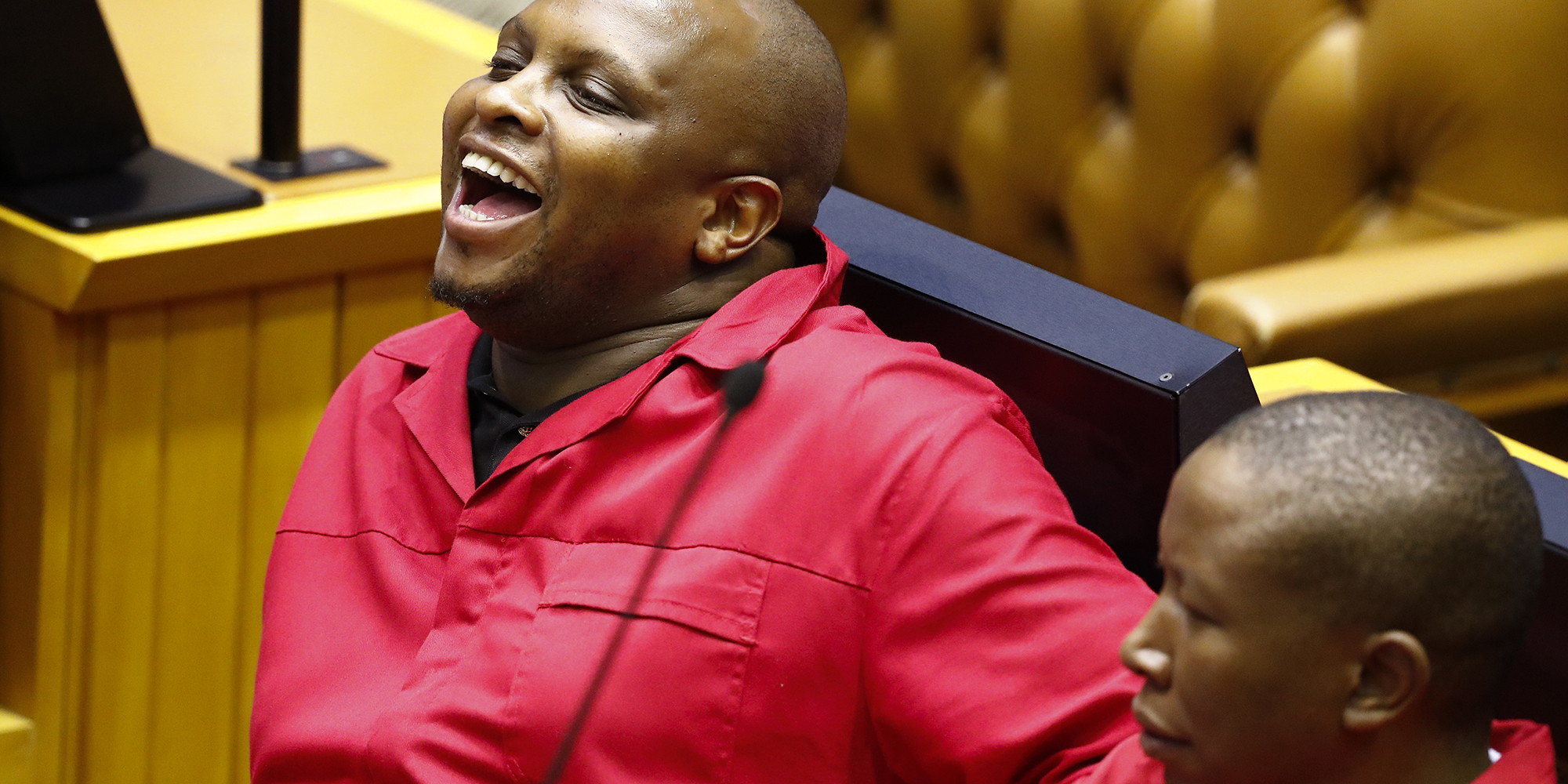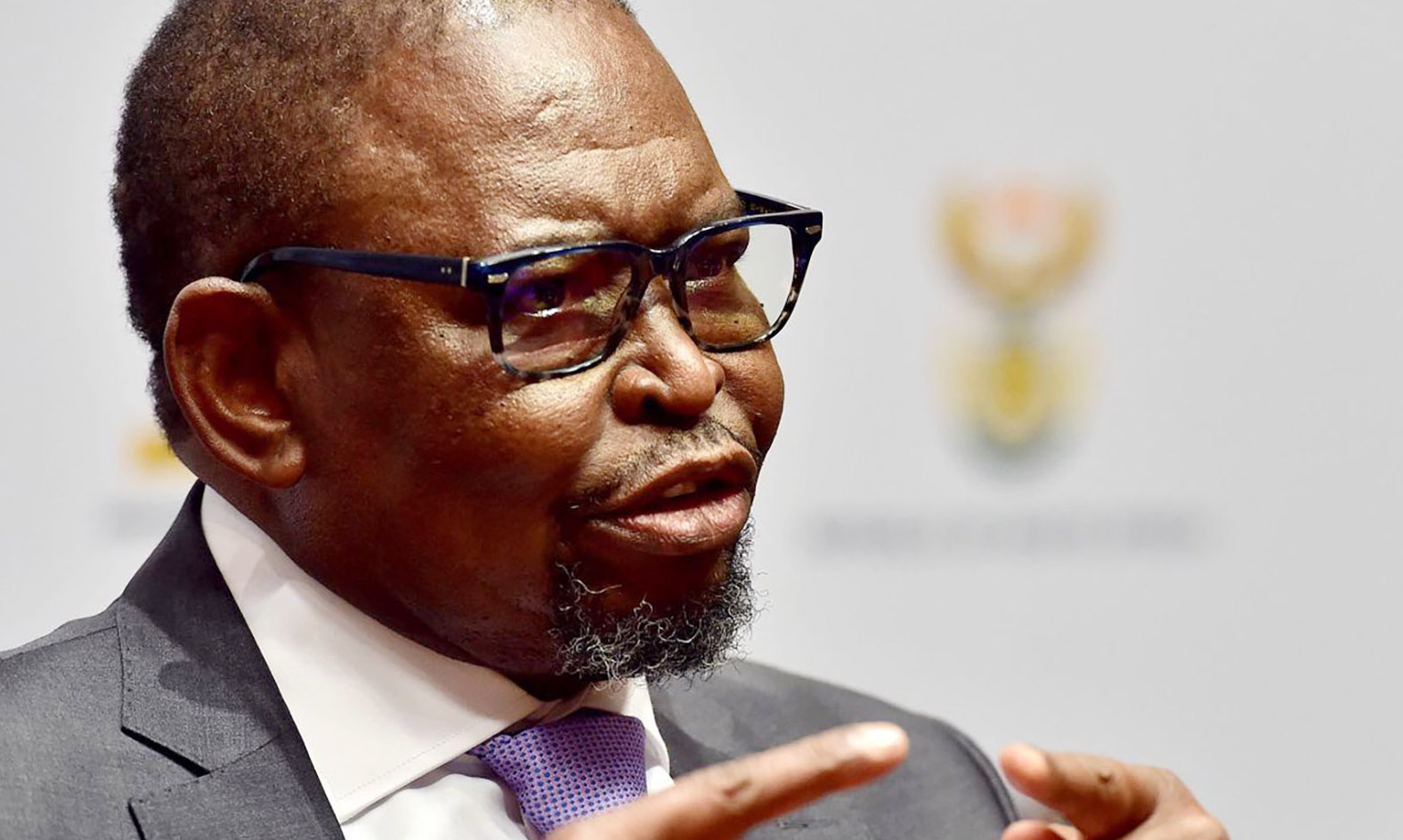The official line is the $750-million World Bank loan, or just more than R11-billion, is part of domestic debt management for which National Treasury indicated in 2021 about R547-billion needed to be raised on the markets. It comes with “favourable terms”, including a three-year repayment holiday, which Finance Minister Enoch Godongwana said were “palatable to us compared to what’s in the market”.
But it was really about the politics.
It was about the ideological push from the EFF, whose chief whip Floyd Shivambu described the World Bank loan as “senseless” and called on the Standing Committee on Finance to reject it. It was about ANC MPs backing the minister, even if they were embarrassed that, although he had been logged into the virtual meeting by his office, he’d not actually been online until 30 minutes after its start. And it was about Godongwana and his team swatting away potentially tricky questions, such as what exactly will this money be used for.
“You may disagree with us. You are entitled to your own opinion, but the rationale [for the World Bank loan] is there,” said Godongwana after being called to deliver closing comments by committee chairperson Joe Maswanganyi about 65 minutes before the meeting was scheduled to end.
“Should the committee reject this, even a notion of the committee to do so, [it] would be detrimental to the work we are doing… If Parliament rejects this [loan], it is going to plunge us into a fiscal crisis.”
Such a comment could be seen as tantamount to bullying the national legislature in its constitutional oversight over the executive. But the minister, formerly the long-standing ANC economic policy honcho, knows how to play his cards, particularly with a friendly chorus line.
ANC MPs Noxolo Abraham and Kenny Morolong had earlier massaged opposition criticism into a request for Treasury to provide further details on why the World Bank loan was taken.
That’s after both Shivambu and DA MP Dion George repeatedly asked for its purpose, describing as unacceptable Treasury’s response that as a World Bank member South Africa qualified for a loan.
“Is it going to be used for social relief of distress (the R350 grant)? Is it going to be used in the 2022/23 year?” asked George, with Shivambu adding: “What is this money going to be used for? Or is it thrown into the fiscus and will disappear?”
“We are going to pick and choose where we are going to use (the money),” said the finance minister, handing over to Treasury.
Treasury’s deputy director-general for asset and liability management, Duncan Pieterse, said that “typically our dollar-dominated funding is used for our dollar-dominated commitments. So we manage the costs prudently.”
And while some dollar-denominated loans in 2021 were converted to rands to meet financing pressures, “we do not intend doing it this year”.
The official joint World Bank-National Treasury statement talks about this policy development loan supporting “the government of South Africa’s efforts to accelerate its Covid-19 response aimed at protecting the poor and vulnerable from the adverse socioeconomic impacts of the pandemic and supporting a resilient and sustainable economic recovery”.
 EFF Chief whip Floyd Shivambu described the World Bank loan as “senseless” and called on the Standing Committee on Finance to reject it. (File Photo: EPA-EFE/NIC BOTHMA)
EFF Chief whip Floyd Shivambu described the World Bank loan as “senseless” and called on the Standing Committee on Finance to reject it. (File Photo: EPA-EFE/NIC BOTHMA)
On Tuesday, after Shivambu renewed his call for the committee to reject the World Bank loan, Maswanganyi cleared the stage.
“I don’t think for now it is proper that we stand in the way of the executive to say you can’t do this, pending this and that. Ours is to play an oversight role.”
And that oversight is scheduled for the day after the 2022 Budget is delivered on 23 February, when Godongwana is expected to brief Parliament’s various finance and appropriation committees. In a highly unusual move, this traditional ministerial briefing did not take place the day after November’s Medium-Term Budget Policy Statement (MTBPS).
Unusually, in Tuesday’s briefing to MPs so close to Budget day, Godongwana let slip that his maiden Budget would emphasise containing debt and ensuring that what revenue was available is spent effectively and efficiently. This signals a continuation of his predecessor Tito Mboweni’s fiscal prudence.
Debt repayments are South Africa’s fastest-growing government spend, according to the 2021 Budget and reinforced in November’s MTBPS which confirmed 21 cents in every tax rand are spent on debt repayment, or effectively R334.5-billion that was not available to address South Africa’s pressing socioeconomic needs.
“For now that’s what we will be telling you on the 23rd (of February): if we don’t change the debt trajectory, we may not meet our commitments,” Godongwana told MPs. “We must change that debt trajectory. This [World Bank] loan on its own is not a threat to this obligation.”
Regarding opposition concerns about corruption, Godongwana said: “It’s not going to be a day’s job. We must make sure expenditure is spent efficiently and is spent effectively. That’s the commitment we are going to reinforce on the 23rd.” DM




 File Photo: Floyd Shivambu member of parliament for the Economic Freedom Fighters (L) and Julius Malema, leader of the Economic Freedom Fighters (R) react as South African president Cyril Ramaphosa (not pictured) speaks during a question and answer session in parliament, Cape Town, South Africa, 14 March 2018. EPA-EFE/NIC BOTHMA
File Photo: Floyd Shivambu member of parliament for the Economic Freedom Fighters (L) and Julius Malema, leader of the Economic Freedom Fighters (R) react as South African president Cyril Ramaphosa (not pictured) speaks during a question and answer session in parliament, Cape Town, South Africa, 14 March 2018. EPA-EFE/NIC BOTHMA 